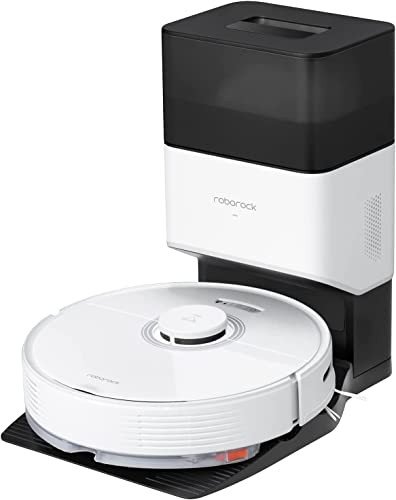The Rise of Autonomous Vacuums: Revolutionizing Home Cleaning
In the age of innovation, family chores are ending up being increasingly automated, and among the most significant developments in this world is the autonomous vacuum. These intelligent cleaning robots are created to reduce the drudgery of traditional vacuuming, making them popular amongst time-strapped households. This article checks out the evolution, functionality, advantages, and constraints of autonomous vacuums, together with a contrast of a few of the leading models on the market today.
What is an Autonomous Vacuum?
An autonomous vacuum, likewise known as a robotic vacuum cleaner, is a small, automatic gadget that navigates through your home to tidy floors without human intervention. Equipped with sensors, video cameras, and advanced software, these vacuums can find obstacles, prevent stairs, and optimize cleaning paths. They typically operate from a rechargeable battery, returning to their charging stations when their power is low or when cleaning jobs are finished.
Key Features of Autonomous Vacuums
Smart Navigation:
- Utilizes sensors and algorithms to map the environment.
- Can navigate complex designs and avoid barriers.
Scheduling:
- Allows users to set cleaning times.
- Can run when your home is empty, guaranteeing minimal disturbance.
Connectivity:
- Many models link to Wi-Fi, enabling app control and integration with clever home systems.
- Users can personalize settings, check cleaning status, and receive notices through mobile applications.
Suction Power:
- Varies between designs; some offer adjustable suction settings for various floor types.
- High-end designs include powerful suction efficient in picking up family pet hair and deep dirt.
Floor Type Adaptability:
- Capable of cleaning carpets, wood, tiles, and more.
- Particular models specialize in tailored cleaning for several surfaces.
The Advantages of Using Autonomous Vacuums
1. Time-Saving
Among the most substantial advantages of autonomous vacuums is the amount of time they save. Rather than investing hours pressing a traditional vacuum, property owners can set robotic vacuums to tidy while they are engaged in other activities.
2. Consistent Cleaning Schedule
With the ability to schedule cleansings, these vacuums ensure that spaces are frequently cleaned up, causing a cleaner home overall. Regular cleaning assists keep indoor air quality, particularly for families with allergic reactions or asthma.
3. Smart Home Integration
Many autonomous vacuums can be incorporated with clever home systems for smooth operation. Property owners can control their vacuums by means of voice commands through gadgets like Amazon Alexa or Google Assistant, boosting user benefit.
4. Compact Design
The slim profile of these gadgets enables them to clean under furniture, such as sofas and beds, where traditional vacuums often can not reach.
5. Pet-Friendly
For pet owners, autonomous vacuums can be a game-changer, as they are typically geared up with specialized features for picking up family pet hair and dander, contributing to a cleaner home environment.
Limitations of Autonomous Vacuums
Regardless of their numerous benefits, autonomous vacuums also have constraints:
1. Restricted Deep Cleaning
While these vacuums effectively keep cleanliness, they may not change the effectiveness of a deep tidy supplied by traditional vacuums, particularly for heavily soiled areas.
2. Capacity Constraints
The majority of autonomous vacuums come with little dust bins that require to be cleared regularly, particularly in larger homes or homes with family pets. This can be an inconvenience for some users.
3. Navigation Challenges
Although navigation innovation is continuously improving, some designs might deal with specific layouts, particularly complex spaces with various obstacles or extremely little rooms.
4. Rate Point
While costs have ended up being more available, high-end designs can still be rather costly, posturing a barrier for some consumers.
Comparison of Top Autonomous Vacuum Models
| Design | Smart Features | Battery Life | Suction Strength | Rate Range |
|---|---|---|---|---|
| iRobot Roomba 980 | App Control, Voice Assistant | 120 minutes | 1700 Pa | ₤ 700 - ₤ 900 |
| Roborock S6 MaxV | Advanced Mapping, Connectable | 180 minutes | 2500 Pa | ₤ 600 - ₤ 800 |
| Ecovacs Deebot Ozmo | Mopping, Smart Home | 110 minutes | 1500 Pa | ₤ 450 - ₤ 700 |
| Neato Botvac D7 | Laser Navigation, Custom Zones | 120 minutes | 2000 Pa | ₤ 800 - ₤ 900 |
| Shark IQ Robot | Self-Emptying Base, Smart Map | 90 minutes | 1500 Pa | ₤ 400 - ₤ 600 |
Significant Takeaways
- Smart Features: Consumers must prioritize models offering robust smart functions for benefit and performance.
- Battery Life: A longer battery life is helpful for larger living areas.
- Suction Strength: Depending on family requirements, differing suction power can considerably impact cleaning performance.
Frequently Asked Questions about Autonomous Vacuums
Q1: How do I keep my autonomous vacuum?
A: Regular upkeep includes cleaning the brushes, emptying the dustbin, and inspecting for blockages. Additionally, keeping the sensing units clean up will assist keep navigation accuracy.
Q2: Can robotic vacuums tidy carpets and carpets?
A: Yes, lots of robotic vacuums are created to efficiently clean both tough surfaces and carpets. However, suction power might vary based upon the model.
Q3: Do robotic vacuums require Wi-Fi?
A: While many autonomous vacuums take advantage of Wi-Fi connection for app control and updates, some designs can run separately without a wireless connection.
Q4: How typically should I run my robotic vacuum?
A: It depends upon your living situation, however running it a number of times a week is often advised, particularly for homes with animals.
In conclusion, autonomous vacuums represent a substantial improvement in home cleaning technology, appealing benefit and performance. While mop robot might not totally change traditional vacuum, they are undoubtedly handy in maintaining a clean living environment. As innovation continues to progress, the future of home cleaning looks promising, and these devices are at the forefront of the revolution.

